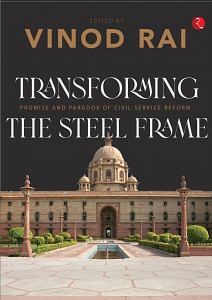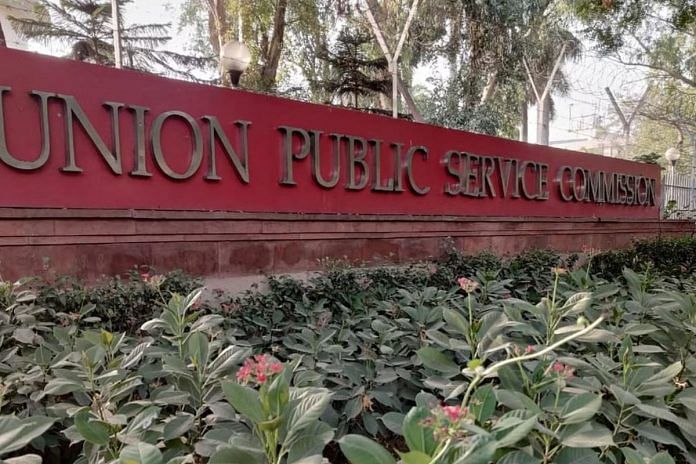It is well accepted that models of governance at the national and sub-national level have to undergo changes if government organizations are firm in their conviction that a ‘citizen-centric approach’, dedicated to upgrading the welfare of a people dwelling in a city, town or village, is to be ensured. The civil services and the Indian Administrative Service (IAS) officers in particular, come more into contact with the common man at the grassroots level. It is this group of persons who now need to shed the ‘distanced and aloof’ image, which was a hallmark of the British legacy and don the role of ‘facilitators’ who work side by side with citizens’ organizations to fully release the benefit of government projects and schemes. A mindset change is thus called for to ‘handhold’ citizens’ initiatives for a better standard of living. Besides the requirement for a multi-sectoral approach to policy framing with a greater participation of the public, it has become more critical to have a multi-department and organization approach in the implementation to ensure that targeted beneficiaries do derive the benefit of schemes devised by government.
In this multi-organization approach, a collaborative approach with citizens’ groups also providing inputs has reaped rich dividends. However, such a collaborative approach requires a mindset change in the bureaucrat and this has to come about at the early stages of the training itself. We proceed to discuss the benefits of such a participative and collaborative effort in Bengaluru city, which has decidedly improved the ease of living in the city. It is our experience that where administration has adopted an open and participative approach, development has been faster and more permanent. In this effort, the role and importance of technology and digitization can hardly be ignored.
Administrators and citizens alike have to be tech-savvy to deliver benefits which are leakage proof, reach the targeted population and are efficiently delivered within the shortest time span. The government at the state and municipal levels have done much to ensure that the maximum benefits of technological development can be derived with least interference by humans, thereby ensuring a distortion-free delivery of service.
Also read: Jain, Muslims, Baniyas, Dalits—communities helping their own crack UPSC exams
A Citizens’ Collective
Bengaluru has witnessed several public participation initiatives, over the years, in collaboration with government, all working towards reforms, improving city administration, citizen service delivery and governance. In the past, platforms have been created by the government for key civic organizations in the city to provide their suggestions for short-term and long-term plans for Bengaluru. But in such instances, the moment the new government is elected, these platforms disintegrate and much of the advocacy work has to start all over again.
However, this is one city where there are several civil society organizations with actively engaged citizen members trying to find solutions for several urban problems that impact the quality of life of citizens—such as universal healthcare; solid waste management; urban transportation; affordable housing; education; water and sewerage; safety and security; and other infrastructures.
The city has been at the forefront of public–private collaborations, citizen report cards, creating coalition with non-governmental organizations and civic society forums. These civic groups have played an important role in pressing for micro policy reforms, demanding and mobilizing better services, monitoring actual provision, pushing for greater accountability from service providers and engaging in mass campaigns to create citizen awareness on several issues. The Bangalore Political Action Committee (B.PAC), established in 2013, is one civic organization that has existed now for over eight years, seen three different governments from different political parties, but has managed to establish itself as a non-partisan, forward thinking, credible organization keenly working to improve the quality of life of citizens of Bengaluru.
The role of civil servants has become increasingly complex, with the need to manage and balance diverse demands from citizens. The role of the civil servant has to therefore, shift from being an administrator to being more consultative, participatory but impartial in nature, looking at technology and innovation-driven solutions to the urban problems faced by the city. The civil servant, more than ever, needs to have a team that has deep understanding and expertise of the domain issues of urban planning, environment, water, waste management, etc. with a good understanding of technology and the vision to use digital tools and open data for innovation in service delivery and better governance. These officials can play an influential role in achieving positive outcomes through coalition and collaboration, such as improvement in efficiency levels of service delivery, equity in service delivery, institutional reforms and policy changes that suits the growing demand of citizenry.
An important prerequisite for such partnerships and reforms to be effective is to ensure that citizens and Resident Welfare Associations are equipped with knowledge, skills and the confidence to play an active role in public dialogue, consultation and local decision-making.
Case Studies: B.PAC and Others
Prior to the constitution of B.PAC, Bengaluru city had seen few groups or organizations working with government. A few were constituted by government in association with corporates such as the Bangalore Agenda Task Force in 1999 and Agenda for Bengaluru Infrastructure and Development Taskforce, constituted in 2010, among several others.
Each of these groups or institutions had a vision and some focus areas and have contributed to participatory governance in its own way. Several of the works undertaken through these forums have fostered increased civic activism, public awareness on key issues and resulted in some improvement in quality of services in select areas. Some of these successes are being replicated in other Indian cities as well. As the B.PAC website describes: Bangalore Political Action Committee (B.PAC) is a non-partisan citizen’s group that aims to improve governance in Bengaluru and to enhance the quality of life of every Bengalurean.
B.PAC is specifically targeting good governance practices, integrity and transparency in all arms of the government, improving the quality of infrastructure in the city and identification as well as support of strong candidates for public office at all levels.
 This excerpt from Kiran Mazumdar Shaw’s chapter in Vinod Rai’s ‘Transforming the Steel Frame: Promise and Paradox of Civil Service Reform’, has been published with permission from Rupa Publications.
This excerpt from Kiran Mazumdar Shaw’s chapter in Vinod Rai’s ‘Transforming the Steel Frame: Promise and Paradox of Civil Service Reform’, has been published with permission from Rupa Publications.



